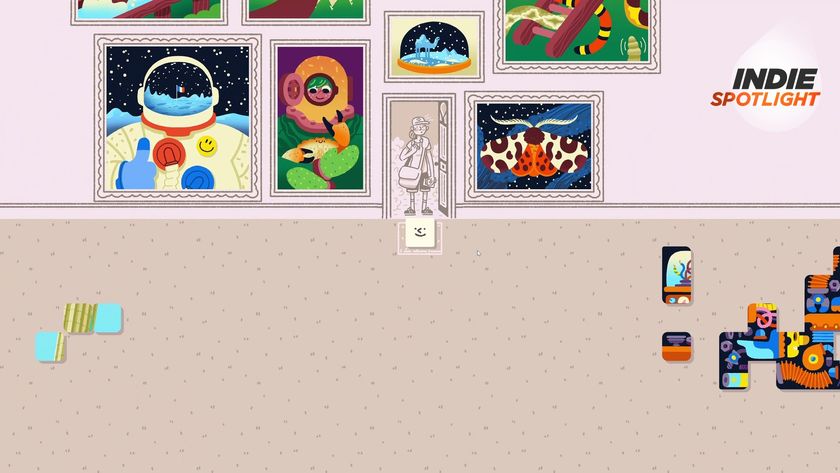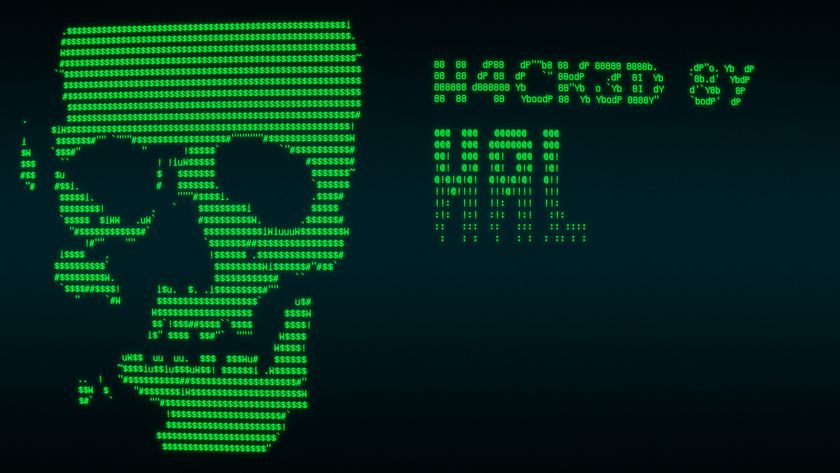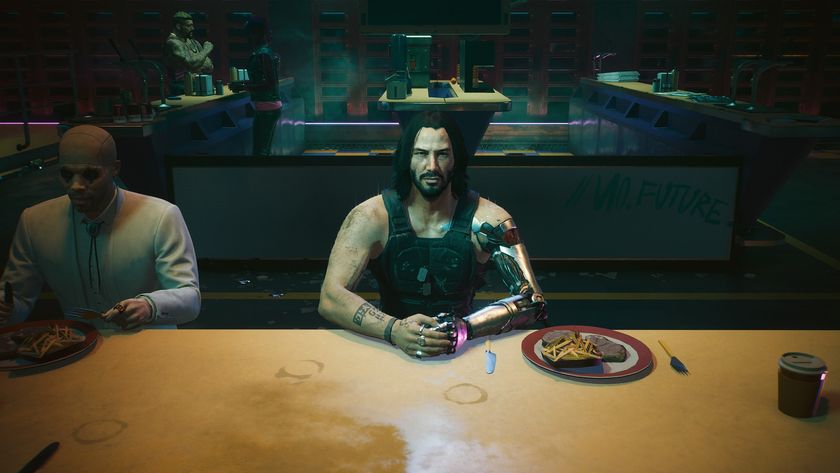How Rhianna Pratchett is helping to give us female characters that have been ignored until now
Lost Words tells a never-before-seen story, with a never-before-seen mechanic. Here’s how it turns the page…
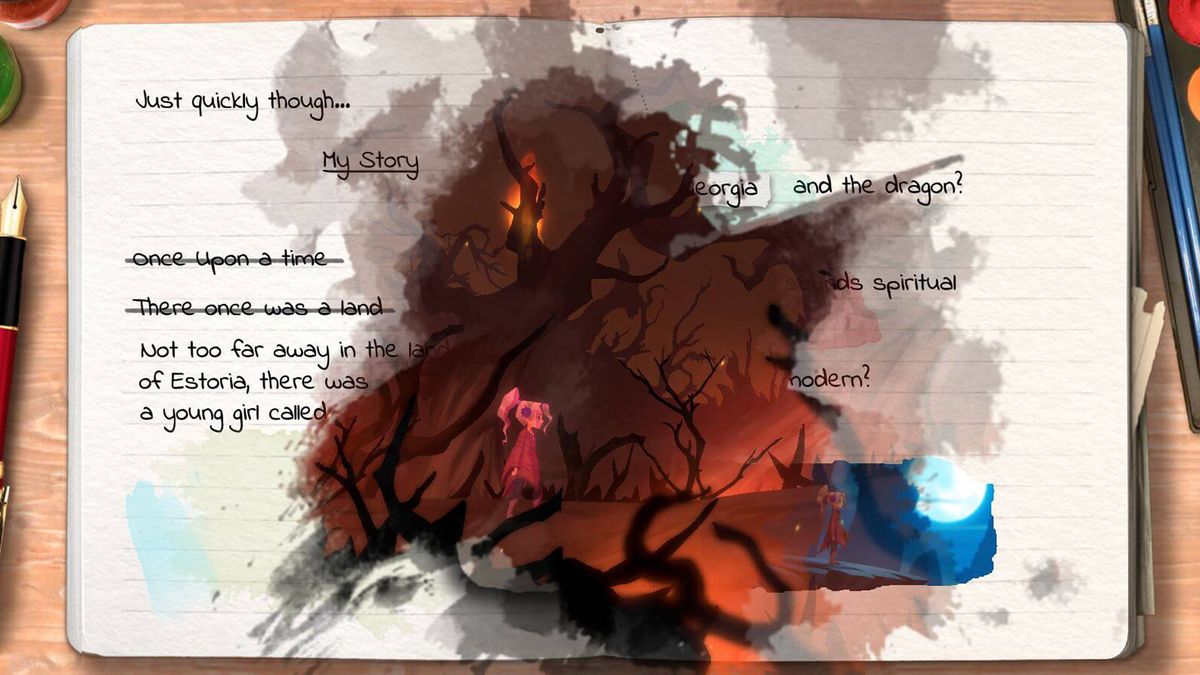
There’s a big, glaring hole in video games. Have you noticed it? It’s about 4 foot high, and likes Little Mix. The tweenage time of being Not-A-Girl, Not-Yet-A-Woman is a puzzling (ahem) time of discovery, change and a whole lot of feelings. It’s ripe for storytelling. Just ask Britney. But where are all the tween girls in video games? Lost Words: Beyond The Page, the upcoming indie puzzler written by decorated Tomb Raider, Overlord and Mirror’s Edge writer and all-round literature royalty, Rhianna Pratchett, is one of the few exceptions.
Set for release later this year, the beautiful narrative-driven puzzle platformer skips between taking place in a young girl’s diary – that of protagonist, 12-year-old aspiring writer, Izzy – and in an immersive fantasy world created by the ideas she jots down on the pages of her journal.
It’s a unique concept that is not only delicious to delve into (the team experimented with a few different art styles before settling on its vivid watercolour aesthetic) but provides an as-yet-unseen gameplay mechanic, too. Moving and selecting words on the diary’s page helps you progress, both by using them as platforms to leap between, and by taking onomatopoeia to a new level by using the words’ meanings in the fantasy world to solve puzzles.
Interactive storytelling
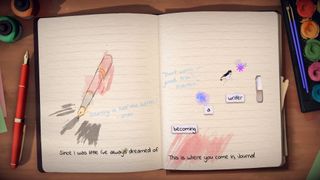
With interactive stories like 2015’s Her Story, and Telltale’s episodic adventure The Walking Dead winning fans the world over – pushing the envelope of what a game can be – boundaries are pushed even further when this ever-popular narrative genre is used as the mechanic. “The potential to tell a different and moving story using narrative as mechanics was quite fascinating to me,” Pratchett says of the project, a change of pace having presided over the first two games in the Tomb Raider reboot in recent years. It may not even be released yet, but the game is already winning awards, with twelve titles including UKIE’s UK Game Of The Show at Gamescom in 2017. Innovative and immersive by its very nature, it’s not hard to see why.
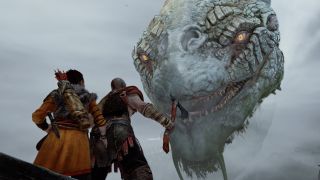
Looking for something new to play? Then why not check out our list of the best single player games.
“Izzy’s fun and jolly, around the age of twelve,” says Pratchett of the game’s hero, “It’s a really interesting age because you’re not yet a teenager, but you don’t quite feel like a kid. She’s just getting a taste of the adult world. There’s a lot to explore there.”
Though an aspiring writer, the game’s lead isn’t autobiographical as much as inspired by an old friend, says Pratchett, “Izzy’s quite heavily based on Katie, the little girl I used to live next door to when I was eleven. She liked crafts, and she liked bright things. We used to play Leisure Suit Larry together... which was kind of delightful. We both learnt the word ‘prophylactic’ from it.”
Coming of age
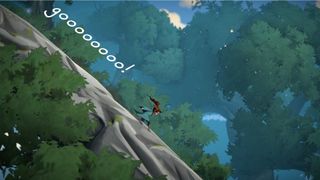
On the coming of age story, Pratchett adds, “How a child sees the world, and those moments where their world shatters slightly and becomes a little darker, are really fertile ground for writers.” In Lost Words, that moment where that world shatters is when Izzy loses her grandmother: An event told to us through her diary. Though the game is bright and its protagonist young, the game deals with heavy, human subjects – but not in a bleak way. “I’ve come off two 18-rated Tomb Raider games,” says Pratchett, “So it’s nice to do something a bit lighter. It’s dealing with death, but finding the light in the darkness.”
Sign up to the 12DOVE Newsletter
Weekly digests, tales from the communities you love, and more
While Izzy puts us into the shoes of a character we rarely get to see in games, that of the tween, it's yet another example of just how far off the mark gaming is when it comes to representation. Izzy may have a strong relationship with her grandmother, for example, but her story is even less likely to emerge. It's as Pratchett says, “I’d like to see a gran protagonist.” And she isn't alone – we're all so used to having world-weary dudes head up our action games, but playing as a lady pensioner? Not so much.
“When we talk about diversity in games, sometimes it becomes narrowed down to needing more women in games. And it’s actually much greater than that. It’s different ethnicities, backgrounds, sexual orientations, and ages. That’s often neglected, and I’m interested in the different stories that different ages bring.”
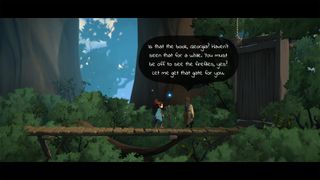
"I’m interested in the different stories that different ages bring"
Rhianna Pratchett
“There’s always been a lot of hesitancy, even about putting older female characters in games,” Pratchett continues. “Women are not allowed to age in the same way as men are, like, for example, Splinter Cell’s Sam Fisher.”
When there’s so much scope for storytelling, it seems like nothing if not a waste when you realise that seemingly all female video game characters are perpetually 25. So why don’t we see young or old women in our games? “I mean, there are a lot of male developers,” considers Pratchett. “I think there’s a hesitancy there because they think that if you’ve got a predominantly male development team, they might not know what it is like to be a 12-year-old girl. But then, my dad was never a 12-year-old girl, and he could write great younger and older women,” says the writer, of her father, the legendary British Discworld author, Sir Terry Pratchett.
Take control
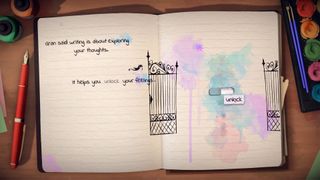
There’s a key difference in the nuts-and-bolts of hers and her late father’s storytelling mediums of choice though, “With books, an author has control of the whole world... I think game development is at the other end of the spectrum when it comes to authorial control. With game development, writers are cogs in the machine, unless they’re creative directors or game directors,” says Pratchett, “But I think the indie scene is great for telling more personal stories.”
Of course, in her experience in writing some of the biggest blockbuster video games in history, Pratchett knows how to get her point of view through that big-budget machine and out the other end: “Some of my biggest points of pride are battles that I’ve won behind the scenes. No one will ever know about the clash that happened just to get a particular line through.”
The battle was no more evident than in Pratchett’s experience writing for 2013's Tomb Raider: “In the first reboot, when Lara is geeking out about Himoko’s backstory with Whitman and Lara says, ‘A woman gets that much power, sooner or later they call it Witchcraft.’ That’s one of my favourite lines and that’s one I had to battle a little for.”
And speaking of women, Black Magic, and power, as four wise women once proclaimed, “You’re the man… but I got the power!” That wasn’t Lara Croft who said that. Nor was it Lost Words’ Izzy. That’s a Little Mix quote. And with it, we can see that the big, glaring hole in the industry is finally closing.
Lost Words: Beyond the Page will release on PS4, Xbox One and Steam later this year.
Rebecca (Bex) is a freelance journalist, presenter, and interviewer specialising in TV, movies, and games. Was once the Movies and Gaming Editor at MTV, Bex is now freelance, and has worked for the Guardian, NME, Cosmopolitan, GamesRadar, and more.
Most Popular







